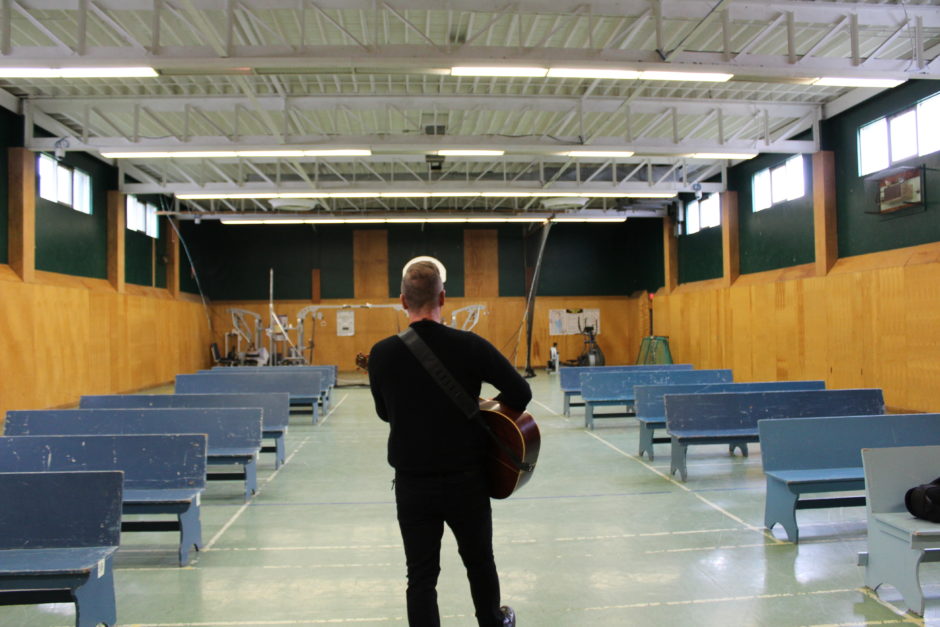Today is not an average Wednesday for me. It's a fall day, and I’m standing inside Her Majesty’s Penitentiary in St. John’s with Séan McCann, the former self-described “kitchen party poster boy” and ex-member of Great Big Sea.
Fortunately, neither one of us are in shackles. We came here willingly. In fact. Séan’s been dying to get in and perform for the inmates.
“I was a heavy drinker for 35 years and I used a lot of drugs,” McCann will tell the inmates later. “I didn’t really care what kind, I wasn’t fussy.
“And I made a lot of bad decisions.”
He will tell the inmates that it’s only “sheer luck” he wasn’t sitting among them.
“Pure luck. So I’m one of you. There’s no difference, I was just luckier.”
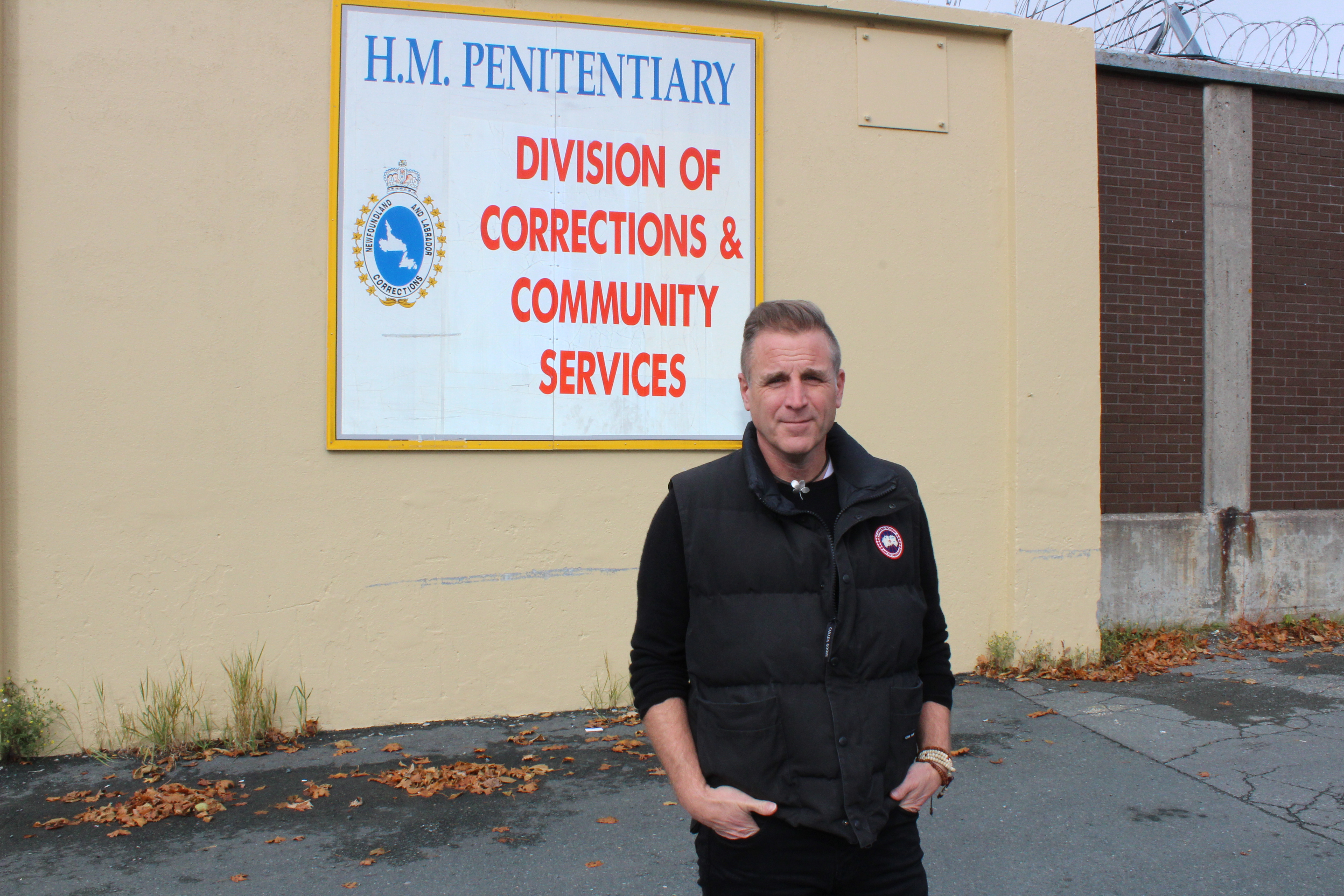
I’m waiting with bated breath to see how the inmates react to McCann.
You see, I’ve been to Her Majesty’s Penitentiary before. I spent years of my life here, unfortunately, as an inmate.
Despite what the name suggests, Her Majesty’s Penitentiary is far from fit for a queen.
Performances from inside this prison don’t always go smoothly. Fights have broken out in the chapel while sweet old ladies from the Salvation Army encouraged inmates to sing. As we go inside, the dozen or so correctional officers lining the sidewalls of the gym tell me I’m not alone in my thinking.
I knew coming in here it was going to be a memorable day. Now we’re about to find out whether or not it’s for the right reasons.
But first ...
Before you find out how it ends, let’s talk about how we got here. That’s a story in itself, and what’s a good climax without some proper buildup?
We’re in the backseat of a rental car being driven by Séan’s friend and business partner, Matt Wells, another Newfoundlander with an extensive career in the limelight.
Most people in Séan’s position use their status to stay out of prison. I aim to find out why it means so much to him that he gets in.
“When I tweeted out that I was gonna do this, all my friends in St. John's were, ‘Are you crazy? Why would you do that?’” McCann said.
“And I said because there's human beings in there. No matter what the condition of the place is ... there's human beings in there.”
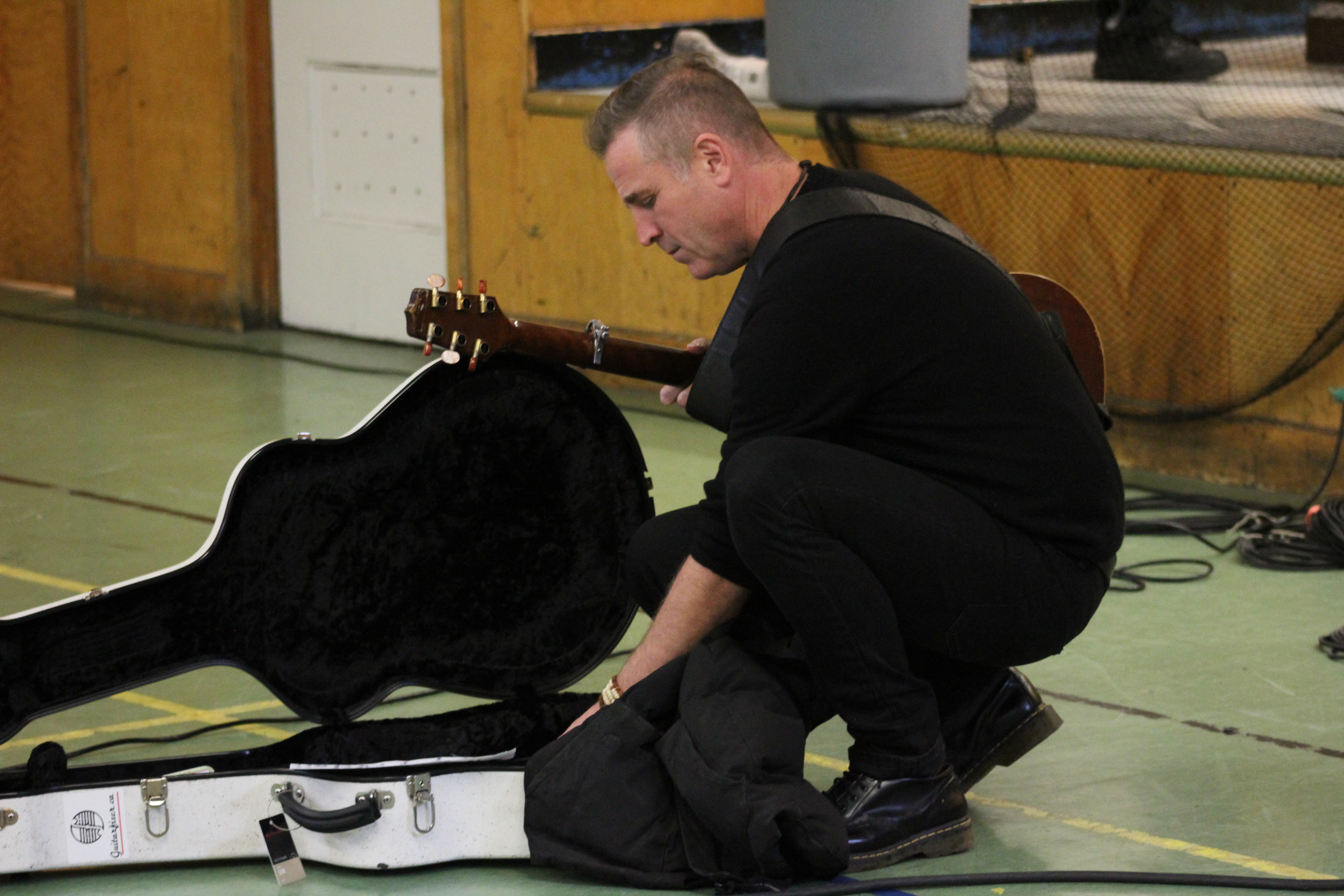
Wells told me that my own past — 10 years of opiate addiction and the rap sheet that comes with it — is what made McCann trust me enough to tag along for this intimate event. The absurdity of my criminal history helping me secure employment is never lost on me.
• Addict, inmate, author: Read Caroline Hillier's 2018 feature about Stephen Miller
McCann’s been very public about his struggle with alcoholism and, at this point last fall, has been sober just shy of eight years. Quite a feat for a man who’s band provided the soundtrack to countless benders.
He sings a new tune these days, bringing his tale of trauma and recovery to audiences around the country in the form of “musical keynotes.” But now he wants to bring his message to a different type of audience.
“If it wasn't for music I'd be the one in jail, no doubt. If it wasn't for music I still wouldn't be able to face my truth and deal with it, you know?” McCann tells me.
“And that's what that's what music gave me: the gift of destroying a secret with truth.”
As a recovering addict, I see the value in telling any story of addiction that doesn’t end in tragedy. Those tales seem few and far between, and the scarcity can make you feel even more hopeless.
I remember all too well the despair of seeing things get worse. Watching friends die, or seeing them go to prison, and never get better. If the withdrawals were the worst, the hopelessness was easily second.
Still, it is not always easy to parade your skeletons out of the closet. Especially when some of us have absolute boneyards. I ask Séan where he finds his courage.
“Earlier on in my recovery, I had the good fortune to meet people who got up and spoke their truth and they didn't catch fire... they survived,” McCann said.
“That had a profound effect on me. So that's what I've tried to do ever since. I seem to have an ability to impact people that way, and affect them through my music and the truth that I share.”
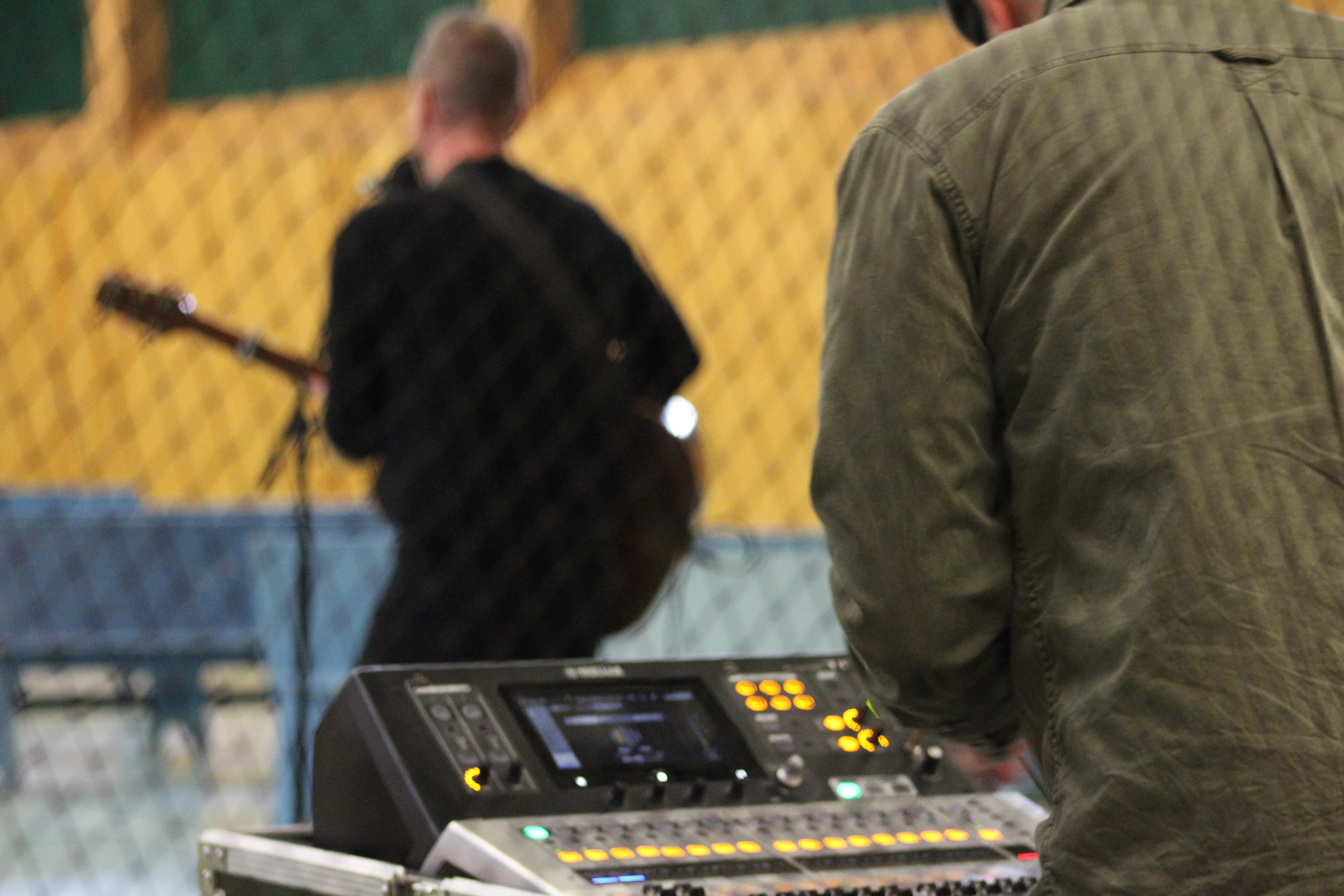
As we drive around the streets of St. John’s, Séan points out many of his former stomping grounds — places he’s lived, places he’s partied. Partied hard.
Looking back, he tells me, the scariest times were the blackout drunks. It’s one thing to be ashamed of what you can remember. It’s a whole other matter to be afraid of what you might have done.
“I've been in [the] lockup twice. I'm not proud of it. They were difficult experiences. I wasn't kept, only overnight because I was cooperative, but both times I was incredibly drunk and stoned,” McCann said.
“And it led to some bad decisions.”
I don’t blame him for not going into further detail. Drawing upon my own past, it’s easy to imagine the kind of scenarios he found himself in. You’re never your best self when blotto, your worst, however...
When it came to getting sober, it was Sean’s wife that gave him the much needed push.
“Without her I… I wouldn't be here, because she had the courage to to give me an ultimatum,” McCann says.
“I figured if she had enough courage to do that then I could at least have the courage to try.”
But he did more than try, he succeeded. He chose his family and his marriage over the bottle and if that seems like an easy choice — congratulations, you’re not an addict.
Back to the big house
We arrive at the prison on Quidi Vidi Lake with just enough time to snap a photo outside the prison gates. I am focusing on the task at hand, but my stomach does an involuntary gymnastics routine just looking at the place.
HMP shows its age. Initial construction was completed in 1859 and the various facelifts haven’t been enough to keep things running smoothly. Issues with plumbing, heating and pests are commonplace.
It’s an oppressive environment for staff and inmates alike.
“I have worked with a lot of first responders, a lot of police departments,
veterans and correctional officers and it's not an easy job,” McCann said. “And I think every human being deserves a place that's humane.”
I ask McCann if he’s nervous. He says he’s not. That makes one of us then.
“If I fail that's on me, you know? But again for me, if I can affect one or two people there ... and if they really hate me, that's fine, I'll suck it up. It could be worse. I'm not going to go to bed there tonight,” McCann said.
“So no matter what happens to me, it's not going to be as bad as what's going to happen to all of them today when they don't walk home to their families.”
Relatively painless
It’s time to enter. I’ve gone into HMP a number of times, but not like this.
As a civilian, you enter a prison through a small door to the left of the main gate. It’s a fairly cramped room divided in the middle by a security checkpoint where you show identification. Then, you pass through a metal detector.
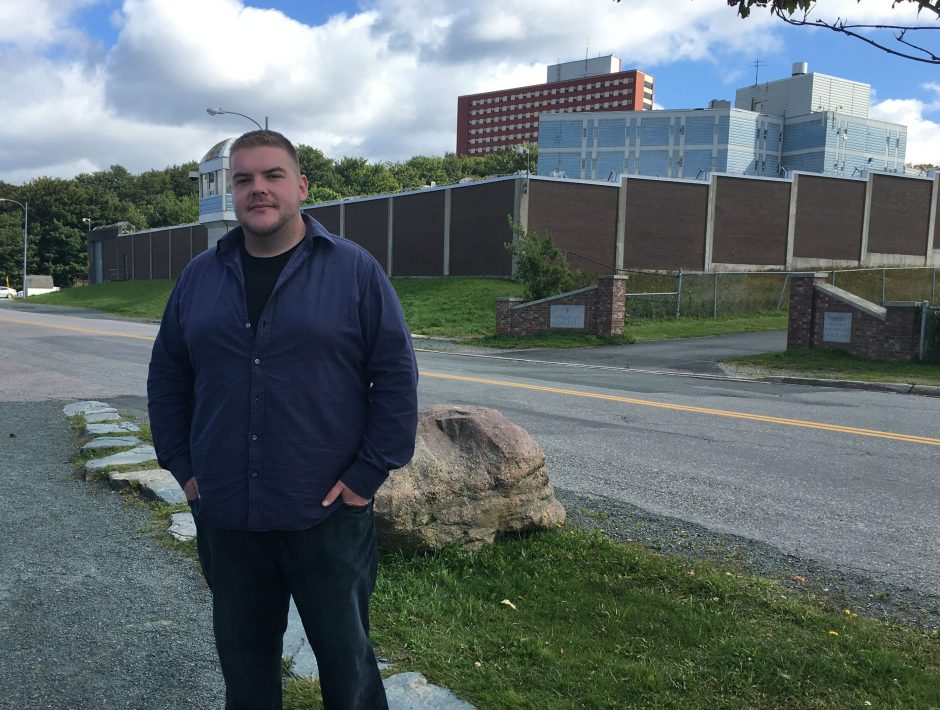
Getting into the pen this time is painless compared to my previous visits. No one asks us to strip naked, or to bend over and cough. They don’t even pat us down. We’re just given the rules and escorted to the gymnasium through a small inmate-maintained garden.
Two of my fellow colleagues from CBC arrive at the same time with the audio equipment to set up the gymnasium for the performance.
The gym wouldn’t look out of place in any high school built in the early 1980s but there are some noticeable differences. For one, the high windows have iron bars in them. Also, a section in the back of the gym has been cordoned off with netting and filled with exercise equipment.
I take pictures as McCann performs his soundcheck and vocal performance. Once the audience arrives, no photographs can be taken, to protect the privacy of inmates.
There is a stage, but it is mostly used as a platform for correctional officers to observe the inmates from a slightly higher vantage point. This section is cordoned off with netting that hangs from the ceiling.
Basketballs have the unfortunate habit of bouncing in the direction of the guards, sometimes at rapid speeds.
Soon, inmates are being ushered in one range at a time and seated in the battered wooden pews that have been arranged as seating for McCann’s performance. This limits the interaction between inmates who may be “incompatible” with each other.
Moment of truth
The inmates are better behaved than I could have hoped for. There’s not even a side conversation amongst them.
McCann wastes no time in baring his heart and soul to them, including how he was sexually abused while he was growing up.
“We had just gotten this new priest. He was a young man early 30s, way younger than the old priests we knew — the old boring fellas,” McCann tells them.
“This guy was a wicked preacher, really charismatic, smart. He was a great speaker and you know what? He was super popular really fast.”
How did the concert go? Listen to the documentary Stephen Miller made for CBC Radio's Atlantic Voice:
The priest was also popular in McCann’s Roman Catholic family. They were honoured when 14-year old Sean was invited to go to Rome on a special pilgrimage.
“He introduced me to the pope... but he also introduced me to cigarettes and alcohol. He poured me my first drink. And he began to sexually abuse me,” he says.
“And I didn't know what to do or who to tell. Or what to do.
“So I decided to keep drinking.”
The gymnasium is silent. The audience hangs on McCann’s every word. He tells them how he had kept that secret until just eight years ago. He told his mother through a song.
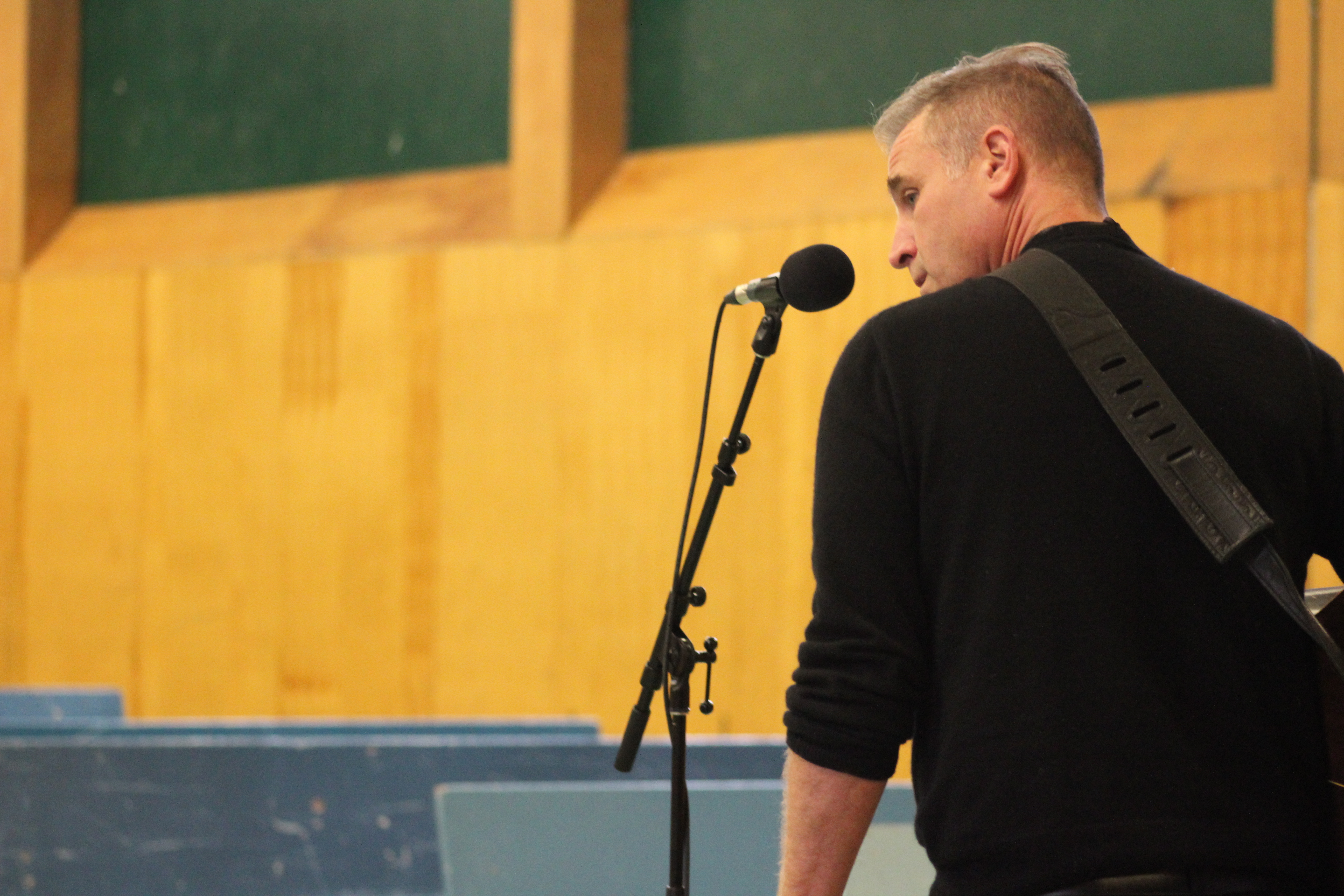
I had read details of McCann’s story before, but as he performed Hold Me, Mother, I found myself fighting tears.
I was shocked to see that men I considered much tougher than myself wiping tears from their tattooed faces.
I’ve seen some of these men take blasts of pepper spray from guards and keep swinging, but McCann had touched a nerve, and the tears kept coming.
A sight to behold
I had seen my fair share of performances and guests while inside the penitentiary, but I had never seen anything like this.
Prison culture is not exactly encouraging of emotional displays, except for anger. So you tend not to get “too into” anything.
This day was different.
McCann kept the mood from getting too sombre with tales from his days as a hard case. The prisoners sing along raucously with the chorus to the last drinking song McCann ever wrote.
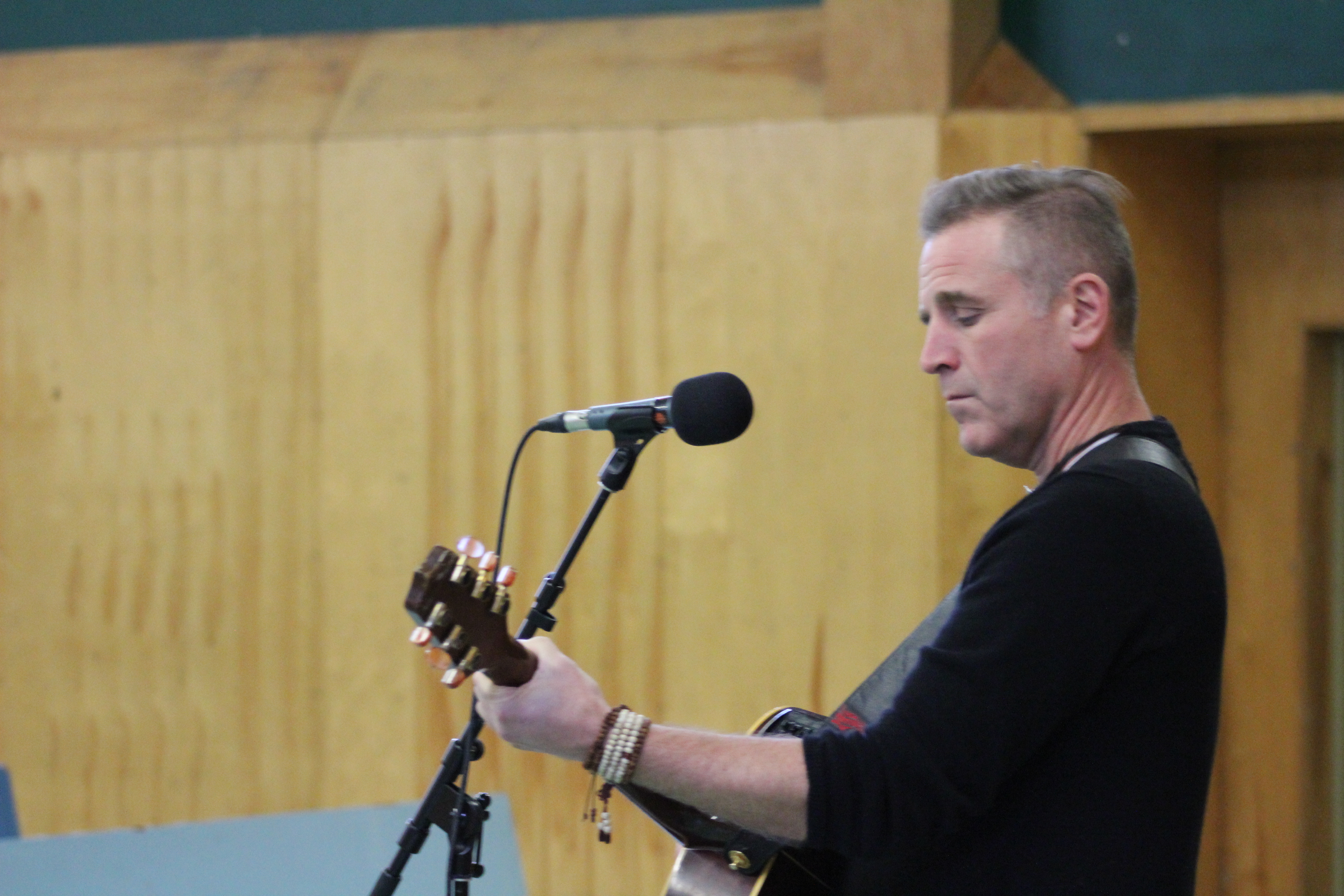
One inmate, to the surprise of absolutely no one, requested Folsom Prison Blues. Despite only knowing one verse, McCann happily obliges.
It turns out that one inmate is the son of an old friend of McCann’s, proving there are fewer than seven degrees of separation in Newfoundland and Labrador.
During his last song, McCann unplugs his guitar and wades into the audience, singing from amongst the pews. The dozen or so guards lined the sidewalls of the gymnasium became visibly tense.
He took the time to shake each hand in the room, inmates and staff alike. “I didn't want to miss one single one … they're all human beings. They're all worthy of that respect...” McCann tells me afterwards.
“I wanted to shake their hand to let them know that I'm not afraid to shake their hand.”
‘It gives us hope’
Some inmates agree to speak to me after the performance. The first, Dean Barter is being released the very next day.
“Made me feel like a human again. Cause while in here you kinda … feel like you're tossed to the wayside and you're not par with everyone else. Less than human. And after seeing that it makes me feel normal again,” Barter said.
“It’s always nice to see a success story and to see people turn their lives around. It gives us hope.”
Would you believe one of the inmates I speak to shares my name? Stephen Miller — same spelling and everything. The symbolism is hard to miss. It’s like I’m sitting across the table from a past version of myself.
“For him to go around and to shake everybody’s hand shows that he actually cares and he wants everybody else to be able to feel what he’s feeling,” Miller tells me.
The gym is emptying out as inmates return to their respective living quarters.
I am grateful for the experience, but I am also grateful that I won’t be going back with them.
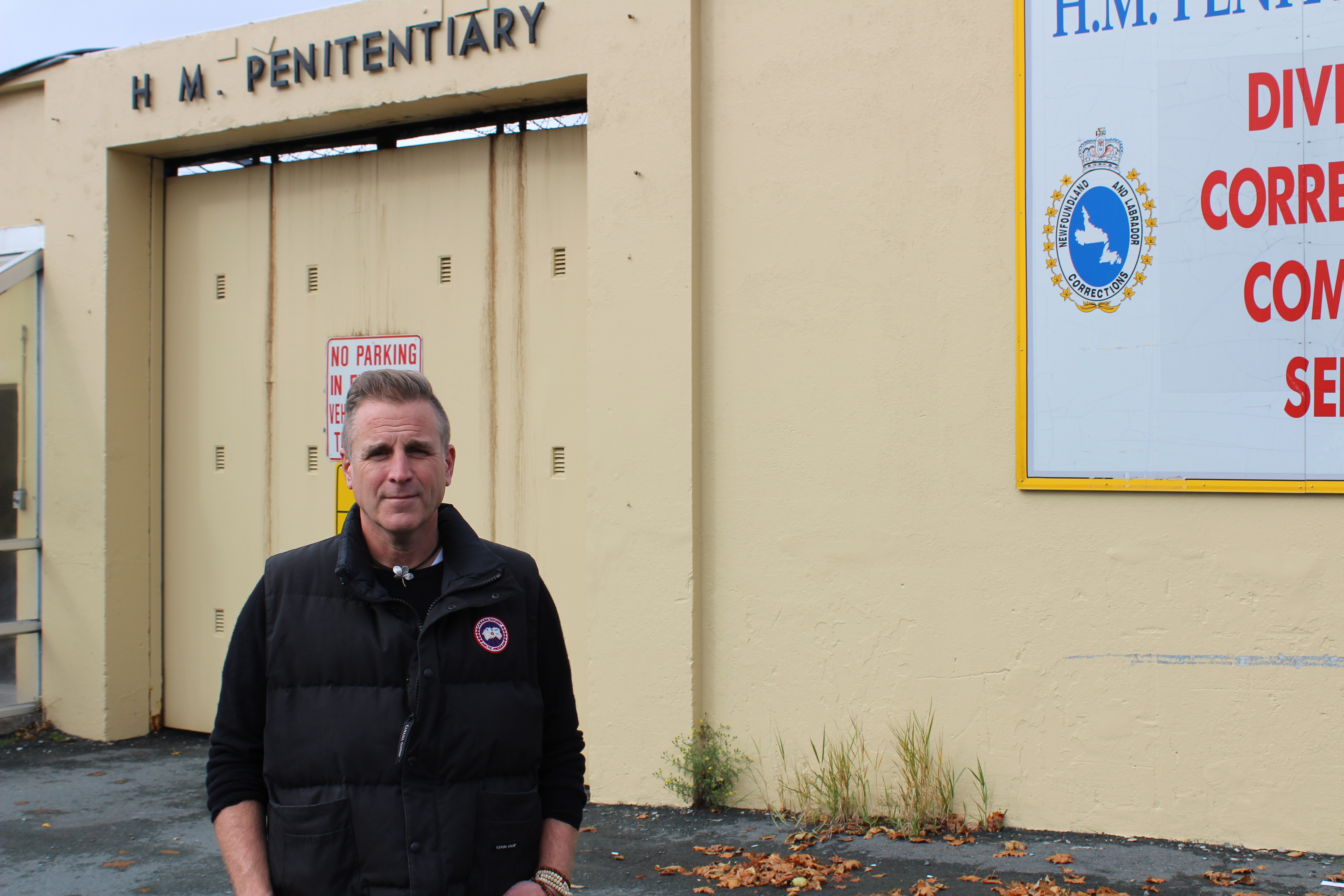
Before McCann even had a moment to catch his breath, I wanted to talk with him, to catch him at the height of his post performance buzz.
“I feel lighter,” he said.
“I feel good, man. I think I might have had an impact on some of the guys. I didn't think they would sing and I put myself out there and they didn't leave me hanging.”
He pauses.
“They were right there and once that happened, I knew I'd be all right.”
